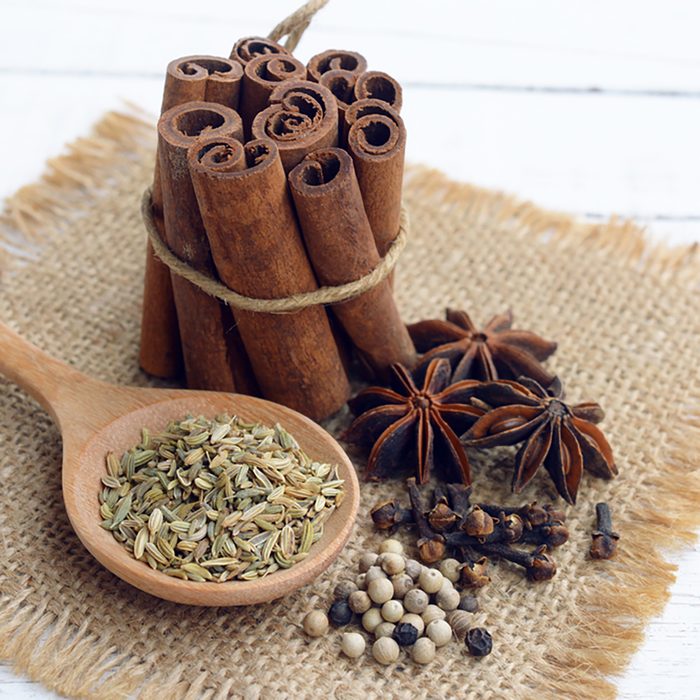
Whole Lasts Longer than Ground
To get the longest shelf life out of your spices, consider buying them whole. Peppercorns, cinnamon sticks, nutmeg and other whole varieties will last for several years, while pre-ground spices lose their flavor much faster. To use a whole spice, you’ll need a grinder of some kind. Both manual and electric tools will get the job done.
Don’t have a spice grinder? Buy one here.
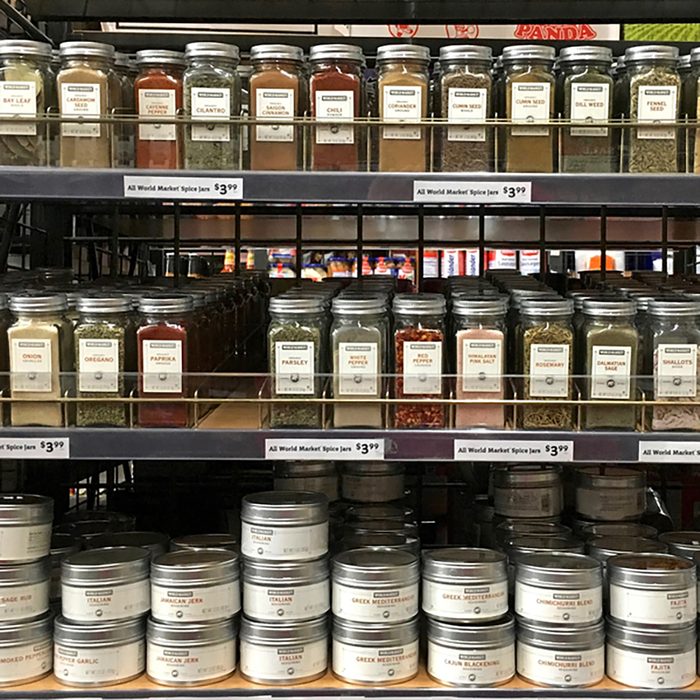
The Grocery Store Shelf may not be Fresh
When you run out of a spice, it’s convenient to just pick up a replacement at the grocery store. However, you’re taking a real risk that the bottle of saffron you grabbed is still fresh. Spices don’t technically expire in the sense that they’ll cause illness past their use-by date, but they definitely lose their flavor. Since grocery stores stock so many items, they may not be keeping track of how long a particular item has been sitting on the shelf.
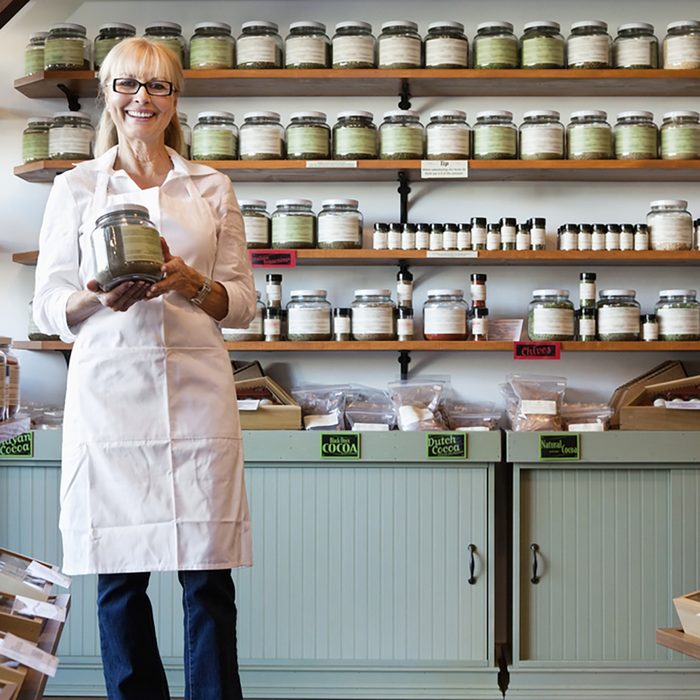
Specialty Shops can Help
The right spice can make or break a recipe. And unless you’re a self-proclaimed spice expert, you likely need a little help determining the difference between Korintje cinnamon and Ceylon cinnamon. That’s where a specialty spice shop comes in. Staff members at these stores can help explain what a specific spice is used for, recommend spice varieties and guide your recipe in the right direction. Here are a few tips to help you buy cheap spices.
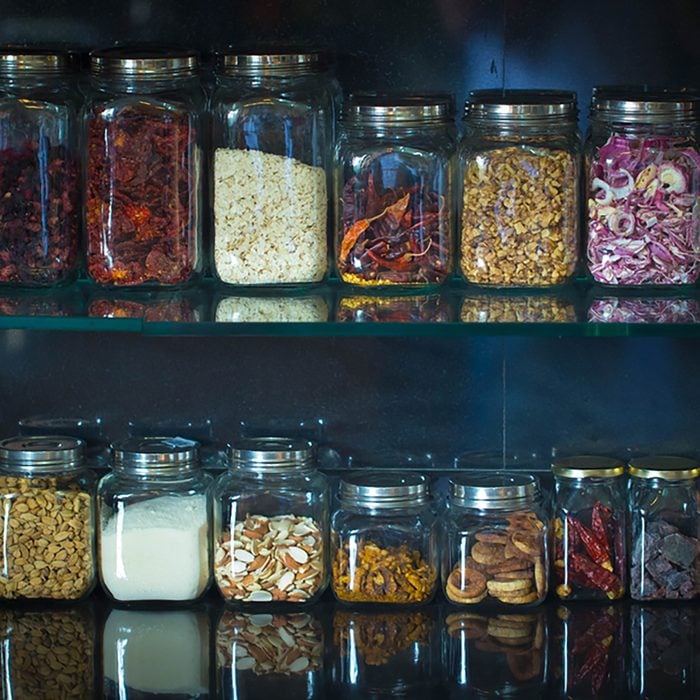
Proper Storage is Key
Ensure longevity by keeping your spices in a cool, dark place. Moisture can easily ruin a spice; so avoid using wet utensils or shaking the container over a steaming pan. Glass jars are preferable to plastic since they’re not porous, and look for containers with well-fitting lids.
Now that you know how to store spices, here are 14 other foods you might be storing wrong.
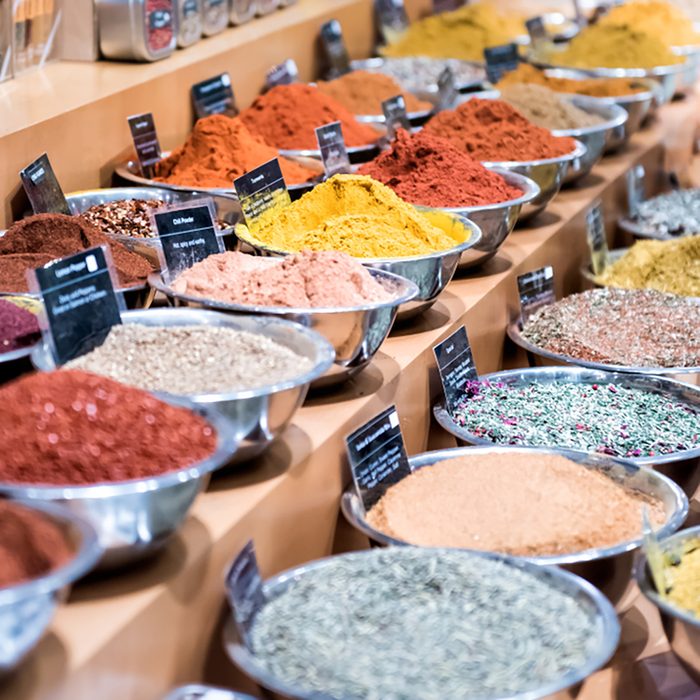
Consider Buying in Bulk
We all know how annoying it is to find a recipe that calls for a teaspoon of a spice you don’t own (and likely will never use again!). Instead of wasting money on the whole jar; buy only how much you need for the recipe. Some spice shops and specialty grocers allow you to buy spices in bulk, making it easy to get exactly how much you need. This trick also works for spices you use a lot. Instead of replacing your oregano every week, buy a large quantity in bulk and refill as needed.
Here are five other items to buy in bulk (+ four items to avoid!).
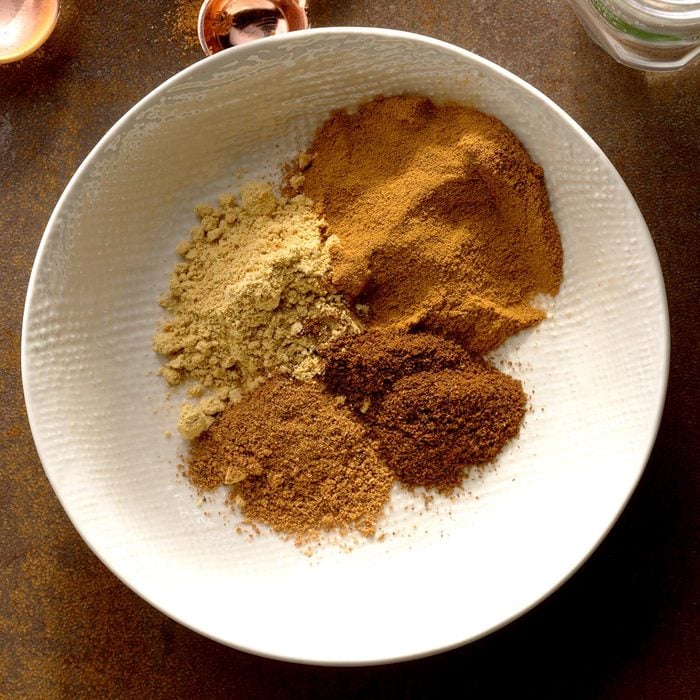
You Can Mix Your Own Spice Blends
There’s no reason to shell out big bucks for a specialty spice blend when it’s so easy to make your own. Just mix together your favorite spices for a customized dry rub, pumpkin pie spice or all-around seasoning mix. If you do opt to buy a spice blend, look at the label. If salt or sugar is the first ingredient, put it down. Both flavorings are cheap fillers that mean your getting less spice bang for your buck.
